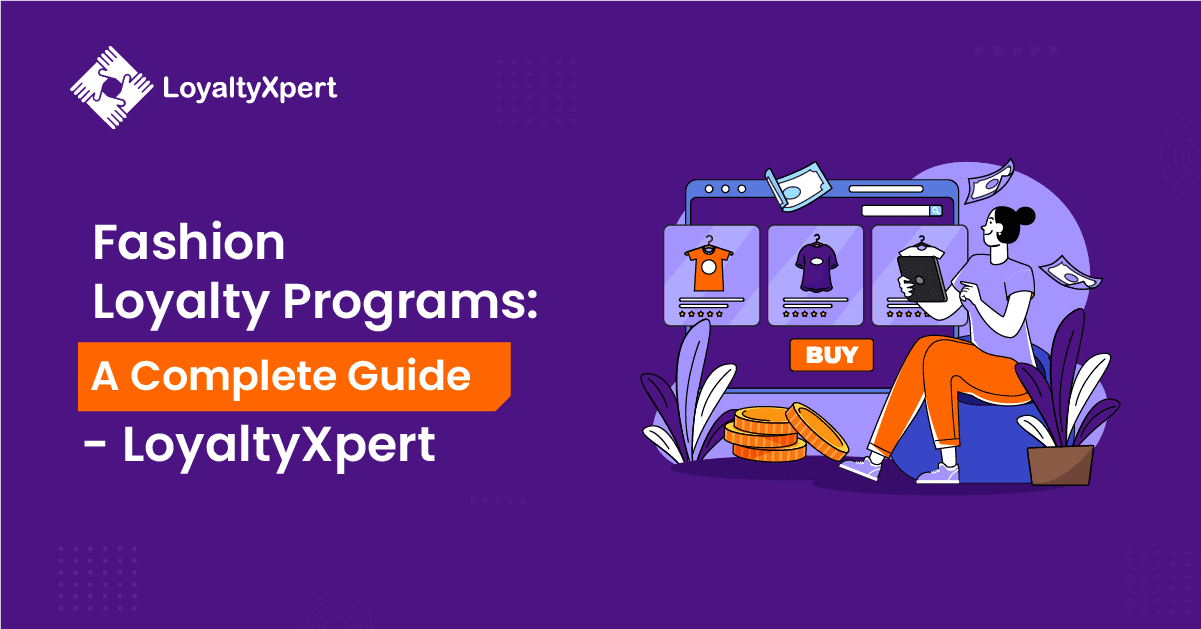
Fashion Loyalty Programs: A Complete Guide – LoyaltyXpert
Author
Ajay Pareek
Published on:
Dec 19, 2023
Table of Content
- 1. Curate personalized style profiles
- 2. Offer free shipping and returns
- 3. Create access to exclusive designs
- 4. Partner with influencers
- 5. Run tier-based programs
- 6. Leverage data intelligence
- 7. Focus on experiential rewards
- 8. Integrate across channels
- 9. Localize initiatives
- 10. Measure program ROI
- 1. Nordstrom's Nordy Club
- 2. Michael Kors
- 3. NikePlus
- 4. Patricia Nash DesignsÂ
- 5. Happy Feet FootwearÂ
- 6. Gapâs Good RewardsÂ
- 7. BloomingdaleÂ
- 8. Hugo BossÂ
See How Our Loyalty Program Can Help You.
Let us guide you through our product features with Loyalty Experts
Loyalty and rewards programs have become ubiquitous in fashion retail, with brands big and small developing programs to drive deeper customer engagement. However, fashion faces unique challenges in building loyalty compared to other industries. With merchandise cycles changing every few weeks and trends falling in and out of favor, fashion retailers have to work harder to keep customers engaged over longer periods.
Whether you are a major fast fashion giant or a small specialty boutique, you’ll find advice to overcome the challenges of customer loyalty in ever-evolving fashion. According to a McKinsey study, customers in high-performing loyalty programs are not only 62% more likely to spend more, but they are also 59% more inclined to pick that brand over a rival. With the right loyalty approach, fashion retailers can develop lasting shopper relationships despite the ephemeral nature of styles.
Understanding Fashion Loyalty Programs
Fashion loyalty programs are structured initiatives for apparel, footwear, and accessory brands to incentivize repeat purchases and cultivate lasting relationships with customers. They enable the creation of differentiated tiers that grant access to exclusive experiences, early access to upcoming seasonal collections, personalized services, and rewards tailored to individual style preferences. Fashion retailers capture rich shopping data like favorite categories, brand affinity, seasonal purchase trends, and real-time browsing behavior to fuel individually relevant content and offers through the programs.
Gamification drives desired actions through tier progression, points earning, and redemption catalogs. Robust data analytics quantify program ROI while informing personalized experiences and inventory planning. Creating a loyal, recurring customer base from one-time or first-time purchases is the secret to expanding your business. Profits can increase by 25% to as much as 95% with a 5% increase in the number of loyal customers. Ultimately, fashion loyalty aims to make members feel understood and special, translating to measurable lifts in retention, share of wallet, and lifetime value.
Customer Retention Challenges for Fashion Brands
Fashion brands face distinct hurdles when fostering customer loyalty compared to other industries. With merchandise turning over every few weeks aligned with seasonal runway shows and micro-trends falling out of favor in mere months, fashion houses experience constant churn. Shoppers easily shift allegiances to whatever labels capture the latest tastes. However, brands make significant upfront investments in designing, producing, and marketing new collections each cycle.
Without repeat business securing a reliable base of customers intrinsically tied to the brand behind passing trends, profitability suffers from immense volume requirements to stay afloat. Thus, fashion retailers must get creative in making true brand advocates amongst fickle consumers who equate loyalty to specific items rather than the underlying label. Securing customer retention counters the innate novelty-seeking nature of fashion.
Best Practices and Features to Make Fashion Loyalty Programs Stand Out
1. Curate personalized style profiles
Loyalty programs for fashion brands have the distinct advantage of capturing rich data around personal style preferences and shopping behavior. As members interact, build personalized style profiles tracking preferred brands, colors, sizes, and past purchases. This data drives relevant rewards like tailored product recommendations and perks fitting wardrobe tastes. Leveraging such member data helps fashion brands deliver highly individualized experiences at scale.
2. Offer free shipping and returns
Free shipping and returns are highly desired fashion e-commerce incentives. Providing these for loyalty program members removes purchase friction and incentivizes larger baskets. Members enjoy the flexibility to try items at home, overcoming the inability to test pre-purchase online. Programs mimicking in-store experiences see the willingness to try new styles. Increased conversions and order values offset shipping/return costs via improved lifetime value.
3. Create access to exclusive designs
Granting early access to upcoming fashion collections is an effective loyalty reward. Enable VIP members’ first dibs on new collections, driving a sense of prestige and exclusivity that encourages retention. Share prototypes and influence design decisions to reward production partners. By building channel loyalty with such exclusive sneak peeks, brands boost relationships and purchase conversion for new releases.
4. Partner with influencers
Influencer marketing has become widely adopted in fashion retail for driving brand awareness and purchase intent at scale. Incorporate influencer partnerships in fashion loyalty programs by gifting products and granting early access. Reward top performers creating branded content with points, benefits and commissions. Combined loyal macro and micro-influencers drive unmatched word-of-mouth exposure and sales.
5. Run tier-based programs
Tiered fashion loyalty programs incentivize repeat purchases through prestige and exclusive access. Differentiated benefits at incrementally higher tiers give members aspirational goals to reach for upgraded treatment, driving consistent brand engagement.
6. Leverage data intelligence
Sophisticated data analytics should fuel any best-in-class e-commerce loyalty program. As a manufacturer of apparel and accessories, LoyaltyXpert equips clients to track partner purchase histories, browse patterns, and segment customers. Identifying seasonal sales spikes or most commonly purchased products allows predicting future inventory needs. Partners also receive personalized promotions based on purchase trends that feel more relevant than general offers.
7. Focus on experiential rewards
Driving fashion partner engagement beyond discounts, offering experiential rewards like exclusive industry events, backstage tours, and pop-ups facilitating personalized services. Memorable brand moments build affinity and inner circle feelings.
8. Integrate across channels
Ensure partner loyalty programs integrate across web, mobile and in-store POS for consistent omnichannel engagement allowing flexibility. Platform APIs should facilitate existing CRM system integration enabling unified experiences as brands scale.
9. Localize initiatives
Avoid one-size-fits-all loyalty by localizing initiatives aligned to regional preferences. Tailor promotions and messaging while facilitating channel partner connections within shared geographies. Blending global consistency with regional personalization drives localized engagement.
10. Measure program ROI
Utilize partner sales data and metrics comparing loyalty vs non-loyalty to measure program ROI and optimize strategies. Identify high-value segments and quantify referral campaign impact and cost per acquisition vs lifetime value. Data-driven decisions that increase retention and order value signal program value.
[pafe-template id=”13671″]
Examples of Fashion Loyalty Programs
The following are some of the world’s finest fashion loyalty programs:
1. Nordstrom’s Nordy Club
Nordstrom’s Nordy Club rewards members with escalating point multipliers and exclusive gifts across three elite tiers to inspire brand loyalty.
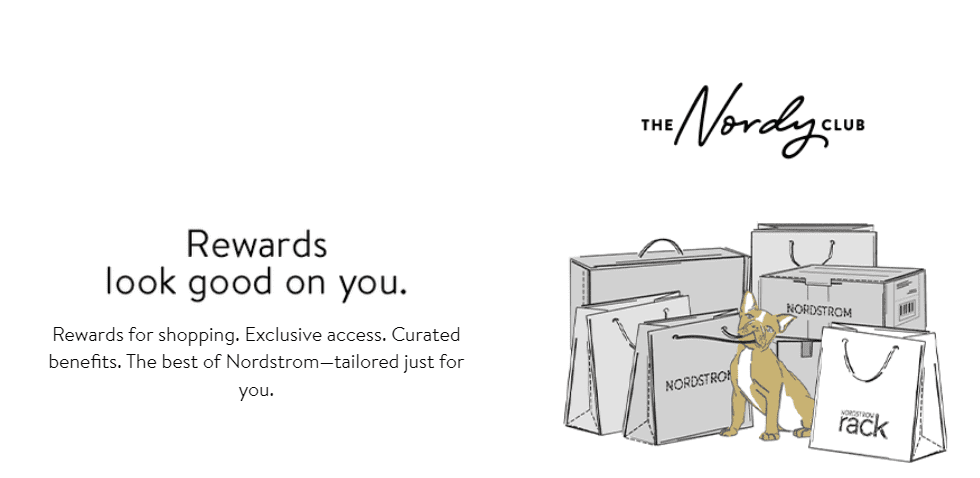
Nordstrom also has a mobile app, making it easier for customers to shop and earn points. Their Nordstrom credit card offers customers 3 points for every $1 spent.
2. Michael Kors
Michael Kors‘ high-end KORSVIP program surprises VIP shoppers with invites to private events, early access to new collections, and complimentary personal styling.
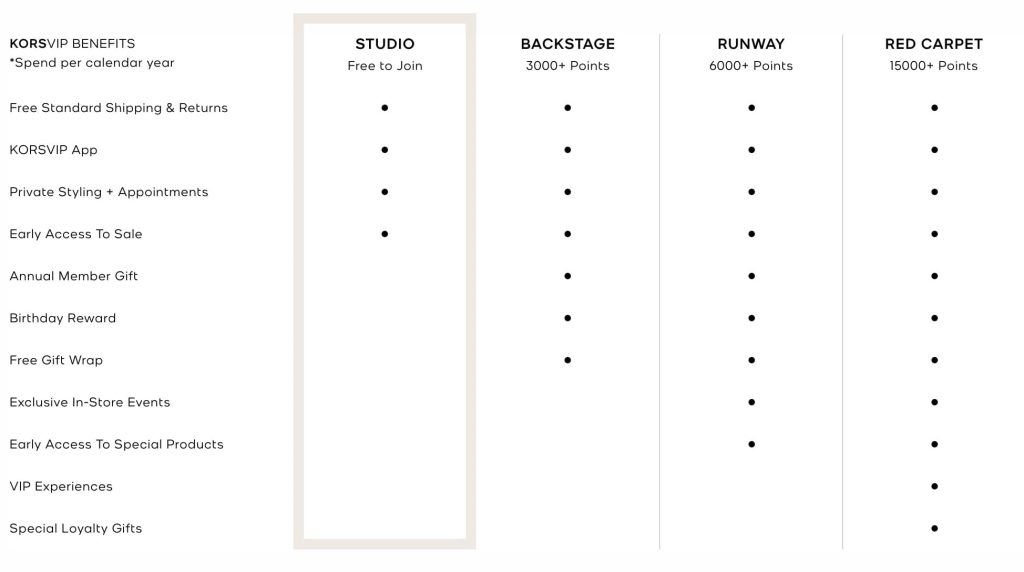
The brand offers loyal customers surprise gifts, access to private events, free shipping, and other benefits. Like most tiered rewards programs, Michael Kors rewards customers with various gifts depending on their tier. The higher the tier, the better the gifts.
3. NikePlus
NikePlus members enjoy free expedited shipping, birthday gifts, and tailored promotions based on their favourite sports and training activities.
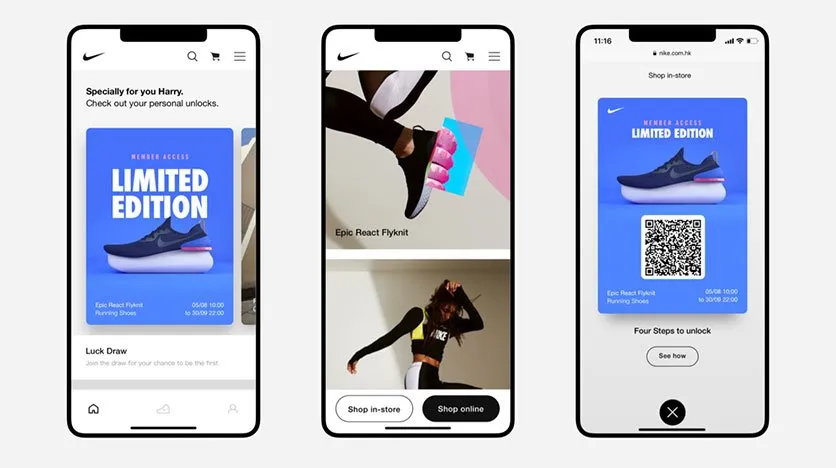
4. Patricia Nash Designs
Boutique brand Patricia Nash Designs creatively incentivizes social sharing and Instagram follows to keep fans engaged between purchases.
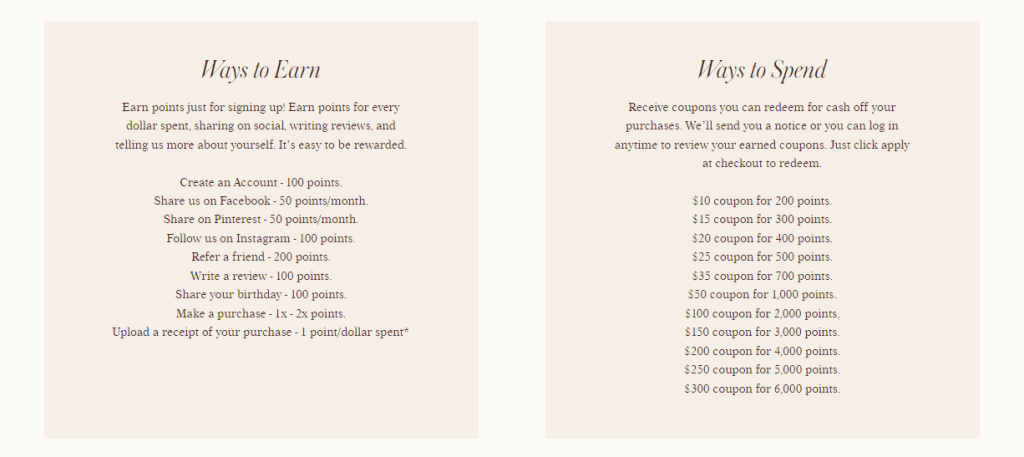
5. Happy Feet Footwear
Sustainable shoe seller Happy Feet Footwear rewards customer referrals and spotlights big spenders on its social channels to inspire advocacy.
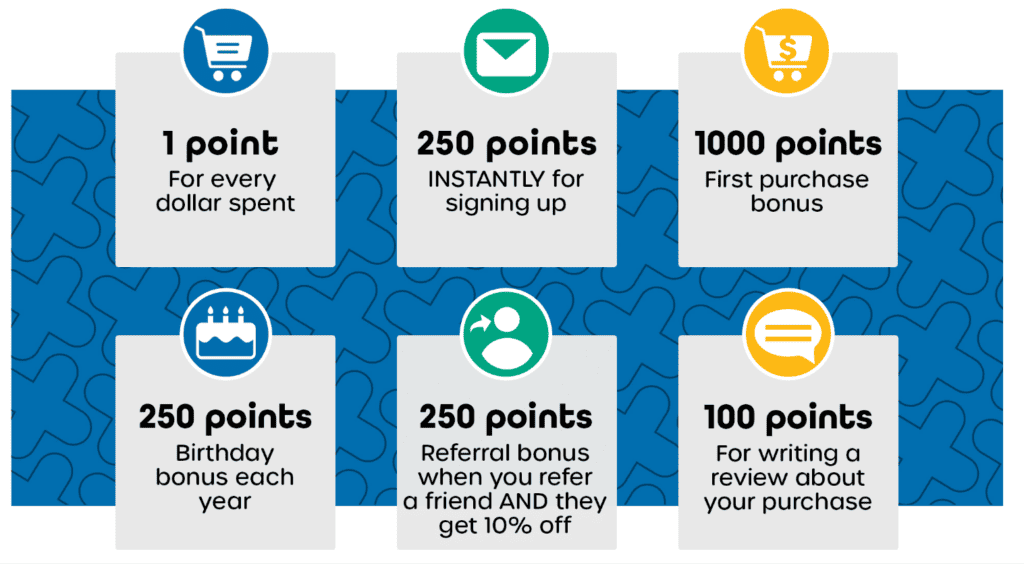
6. Gap’s Good Rewards
Gap’s Good Rewards consolidated program lets customers earn points and personalized perks across the company’s family of brands including Banana Republic and Athleta.
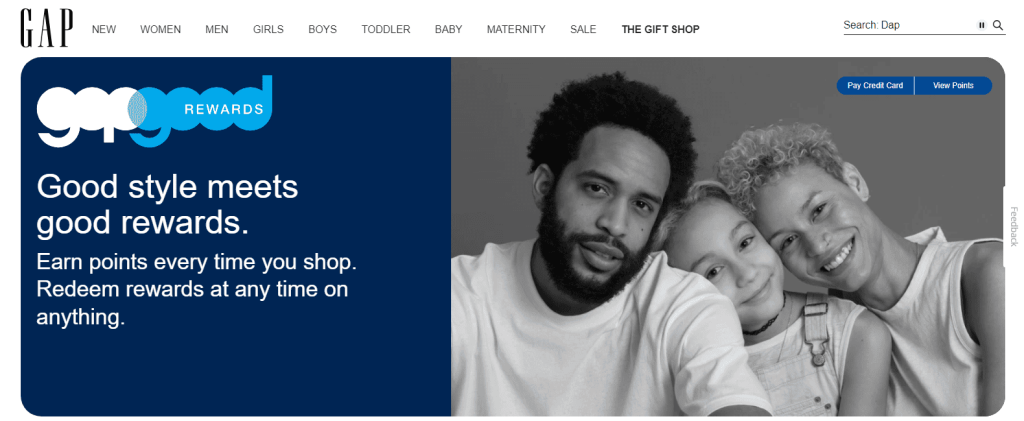
7. Bloomingdale
Bloomingdale’s three-tiered Loyallist program provides tailored “Perk of the Month” offers to surprise and delight members.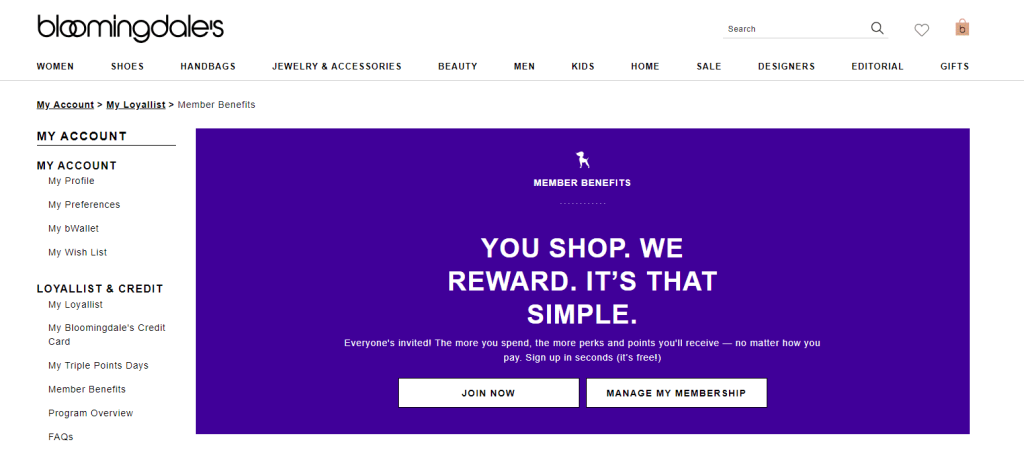
8. Hugo Boss
Hugo Boss structures its Experience program around providing an elite lifestyle experience including drink service and personal styling suited to luxury shoppers.
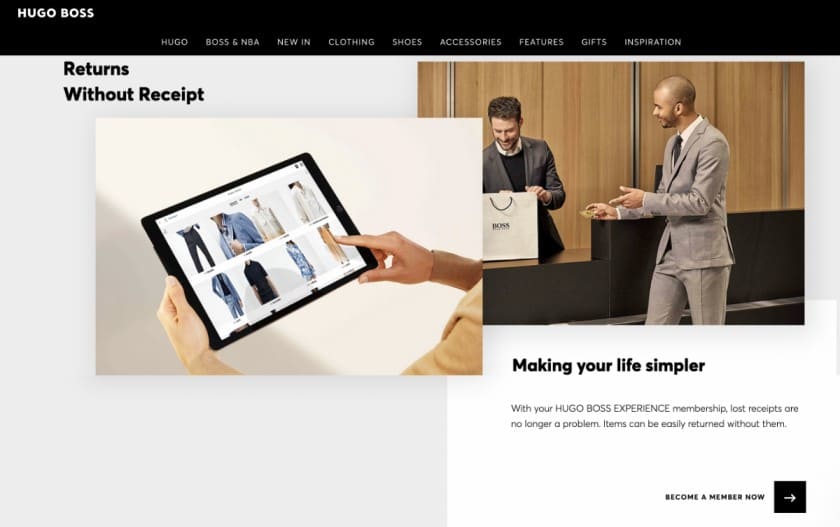
The diverse examples illustrate how fashion loyalty excellence stems from creatively aligning program perks to brand identity using universal loyalty principles.
Endgame
In the ever-evolving world of fashion retail, brands struggle to foster long-term loyalty amidst merchandise cycles and falling in and out of trend. However, as this guide outlines, fashion loyalty programs present a major opportunity to increase retention, order values, and lifetime customer value.
With the right loyalty technology solution providing robust data analytics, fashion brands can continually refine strategies to maximize program ROI. If you’re ready to implement a differentiated partner program tailored for fashion retail, our team would love to guide your strategy. Request a demo or avail a free trial from our loyalty experts to explore how advanced solutions can enable your brand to deepen relationships in this fast-paced industry.
FAQs
Ajay Pareek
Ajay Pareek is a seasoned Sales leader with over 30 years of experience in building and scaling B2B digital platforms. His expertise lies in crafting innovative solutions for channel engagement, loyalty programs, and comprehensive sales management. Ajay has been instrumental in driving substantial growth and profitability for the company through his strategic leadership.



